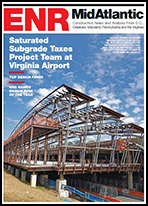Construction Employment Well Below Its Peak in Most Metro Areas
Construction employment remains below peak levels in 329 out of 337 metro areas, according to a new analysis released this week by the Associated General Contractors of America. Given the continued weakness in construction employment, the association urged Congress to pass years-late infrastructure measures, including legislation to fund highway, transit and aviation construction work.
“What makes these job losses even more frustrating is the fact that many of them could have been avoided,” said the association’s chief executive officer, Stephen E. Sandherr. “Thousands more construction workers would be employed today if Congress wasn’t years late in passing measures like the highway and transit bill.”
Sandherr noted that the Phoenix-Mesa-Glendale, Ariz. area lost more construction jobs since its peak employment (down 93,600 jobs compared to December 2006, a 53% drop) than any other metro area.
Other areas experiencing large declines in construction employment compared to peak levels included Riverside-San Bernardino-Ontario, Calif. (down 73,700 jobs compared to December 2005, a 57% drop); Las Vegas-Paradise, Nev. (down 65,900 jobs compared to December 2005, a 62% drop) and Chicago-Joliet-Naperville, Ill. (down 64,800 jobs, a 35% drop). Lake Havasu City-Kingman, Ariz. lost the highest percentage of jobs (70%, a decline of 5,300 jobs compared to December 2005).
In contrast, only six areas have more people working in construction than ever before: Bismarck, N.D. (up 400 jobs compared to December 2010, an 11% increase); Lawton, Okla. (up 100 jobs since December 2010, a 5% increase); Longview, Texas (up 600 jobs compared to December 2010, a 4% increase); Houma-Bayou Cane-Thibodaux, La. (up 100 jobs compared to December 2010, a 2% increase); Waco, Texas (up 100 jobs compared to December 2008, a 2% increase); and El Paso, Texas (up 100 jobs compared to December 2009, a 1% increase).
The construction official noted that the employment figures would have been higher had Congress not been years late in passing a range of key infrastructure investment bills, including a multiyear surface transportation bill that funds highway and transit construction projects nationwide. Sandherr said that the association is working with groups such as the U.S. Chamber of Commerce to push for passage of a new, fully funded surface transportation bill.
“Our economy will never truly bounce back until construction employment begins to approach peak levels in most of our ommunities,” Sandherr said.



